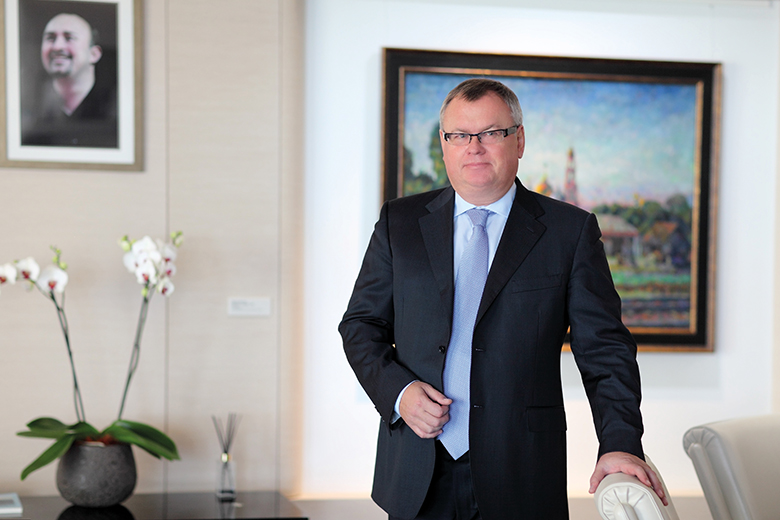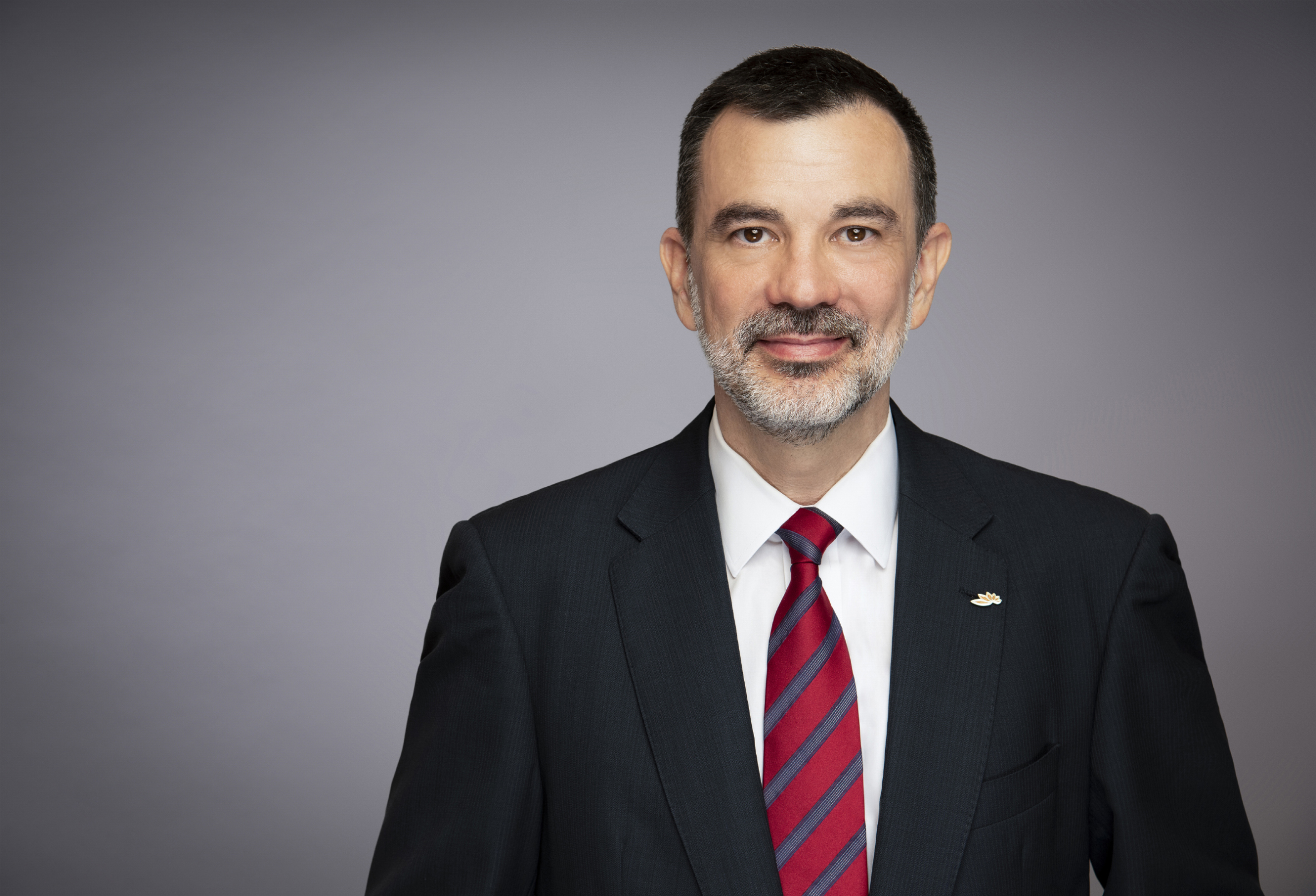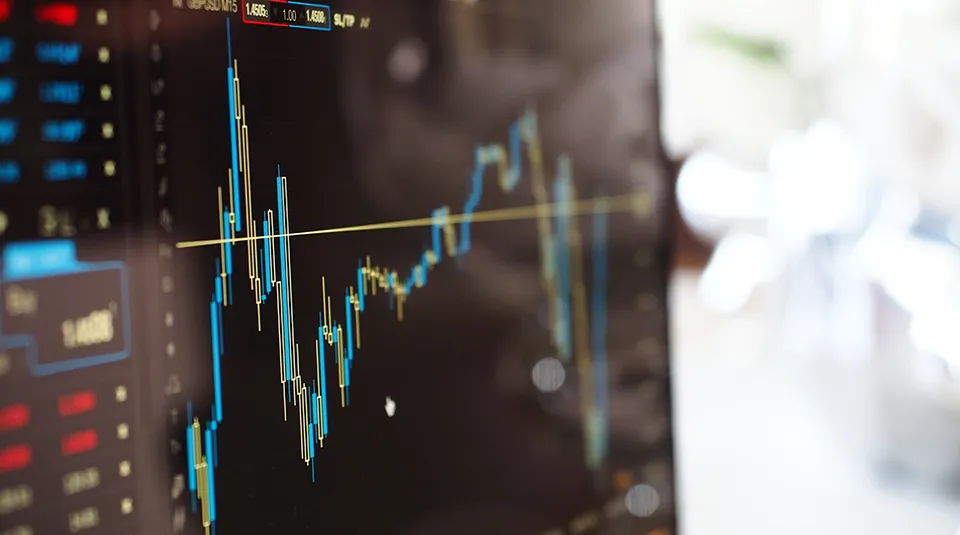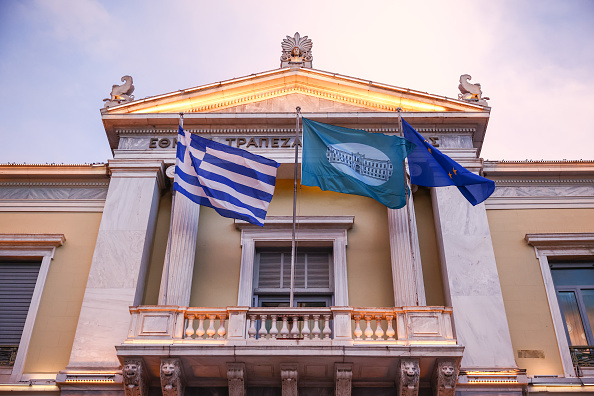Few things better reflect how banking has changed over the last decade – in Russia and globally – than a chat with Andrey Kostin.
As recently as 2014, the high-profile VTB chairman – famous for his theatrics and his alleged proximity to the Kremlin – was pitching Russia’s second-largest lender as a global champion in corporate and investment banking.
|
|
|
Andrey Kostin, VTB |
Five years after the annexation of Crimea, and the subsequent imposition by the West of sanctions on Russian state-owned banks, Kostin’s focus is firmly on VTB’s home market.
“Russia is our number one target,” he says.
In the past, Kostin has often struck a defiant tone when it comes to western sanctions – sometimes literally. In 2016, he famously conducted a ‘sanctions symphony’ at VTB’s Russia Calling investor forum in Moscow.
Today, he sounds less defiant than disappointed.
“It’s very unfortunate that the US and Europeans have been using economic sanctions as a political tool,” he says. “Unlike trade wars, which are aimed at achieving economic results, sanctions means using financial and economic instruments to get a political result.
“We have an international financial and economic system that we are breaking because of our political differences. That’s very dangerous for the global open economy.”It also presents specific challenges for VTB. Not only have sanctions curtailed the bank’s international ambitions but, by cutting off access to global markets, they have also severely limited its ability to raise capital.
In an era of ever-increasing capital requirements, that is a problem for a bank that has often struggled to turn a profit. In 2014 and 2015, VTB barely broke even, while return on equity has averaged less than 5% over the last five years. That compares with 18.6% for Sberbank, Russia’s state-owned retail bank.
VTB’s management has taken note. In recent years, it has been stepping up its focus on the retail and small and medium-sized enterprise segments. Last year, VTB grew its retail lending portfolio by 29% on the back of strong demand for mortgages and unsecured loans, boosting return on equity to 12.3%. As Kostin notes, however, that was still well short of the bank’s target of 15%.
“Our number-one task is to improve profitability,” he says. “It’s our only source of capital for expansion.”
Not only have sanctions curtailed the bank’s international ambitions but, by cutting off access to global markets, they have also severely limited its ability to raise capital. In an era of ever-increasing capital requirements, that is a problem for a bank that has often struggled to turn a profit
Details of how VTB plans to achieve this goal were released in April, when the bank unveiled its strategy for 2019 to 2022. Above-market growth in retail and SME banking are again key pillars of the new plan, along with a radical programme of digital transformation.
Like many lenders with a corporate heritage, VTB has lagged retail-focused rivals such as Sberbank and Tinkoff Bank on digitalization. Kostin is now looking to close that gap.
“It’s clear that technology leadership is one of the keys to success in banking,” he says. “We have a lot to do in this area, but I’m confident we can make rapid progress, even by the standards of the digital age.”
Initiatives
The last year has seen the launch of a clutch of initiatives, from digital consultants in branches to help confused customers and a chatbot virtual assistant, to a pilot project for selling mortgages online. This has helped boost take-up of VTB’s digital services by more than 40%. Around half the bank’s 12 million customers currently make use of its online and mobile banking platforms.
VTB’s management wants to increase the proportion of active users to more than 70% by 2022. It has also set 50% as a target for the volume of sales coming through digital channels and for the proportion of loan products available remotely.
More dramatically, VTB has shifted its stance on digital ecosystems. Previously, senior managers had indicated that they had no interest in following the example of Sberbank by providing a range of non-banking services to clients. Under the new strategy, however, non-banking products have become a development priority.
Several ecosystems are already in the works, including one focused on housing – covering everything from real-estate transactions and leasing to renovations, maintenance and management – and one for SMEs.
In the latter field, VTB will face stiff competition from the likes of Sberbank, Tinkoff and Alfa-Bank, which already have advanced SME offerings.
Andrey Mikhailov, financial institutions analyst at Sova Capital, says VTB’s relatively late arrival in the field could however work to its advantage.
“It may be easier for them to catch up because they won’t be the first movers in that space,” he says. “They can copy the successful solutions of others.”
VTB is hoping its expanded SME offering will allow the bank to double its client base in the segment over the next three years and increase revenue by up to 35%, with commissions accounting for more than 35% of net operating income.
The bank also plans to follow Sberbank and Tinkoff in launching a mobile virtual network operator (MVNO). Like its rivals, which both launched MVNOs in late 2017, VTB has partnered with Tele2, Russia’s fourth-largest mobile operator. Bank officials hope the new service, which was introduced in Moscow in September, will boost customer engagement as well as cutting communication costs.
Implementation
To implement its digitalization programme, VTB plans to ramp up its in-house capabilities. At present, just 15% of the bank’s technological development is done internally. If all goes to plan, a hiring spree will bring that up to 70% to 80% by the end of 2022.
This may be easier said than done, given the intense competition for tech talent in Russia, as Kostin acknowledges. At the same time, he says the real difficulty is not sourcing IT workers but finding bankers who can leverage their skills.
“At the end of the day, IT is only an instrument,” he adds. “Formulating a task and putting a target in front of the IT people is the big challenge.”
Either way, it is clear that VTB’s digital transformation will not come cheap. Nevertheless, it has been broadly welcomed by analysts.
Natalia Berezina, a senior equity analyst at Uralsib, remains sceptical about VTB’s ability to achieve its target return on equity of 15% by 2022 but has upgraded her forecast to 14%.
“Before they presented the strategy, when we weren’t expecting any major changes for the next few years, 12% looked more realistic,” she says. “If they can transform their digital environment, that should bring an improvement in profitability.”
Mikhailov agrees, although he notes that the benefits may be front-loaded.
“It is an obvious thing for VTB to do, and they have just started so there will be some low-hanging fruit they can make good gains from,” he says. “After that, it will get more complicated.”
|
|
In the short term, he adds, the most tangible benefits will come from the integration of the IT systems of various banks VTB has acquired over last decade. These include Bank of Moscow, which VTB took over in 2011, as well as three smaller regional banks it bought in 2018 and 2019.
The bank has already seen positive results from the merger of VTB24, its retail banking unit, with the corporate parent. The process, which was completed in early 2018, included the integration of the retail and corporate branches into a network of universal outlets.
“For the first three quarters of last year, their cost-to-income ratio was markedly below that of 2017, partly thanks to the integration of VTB24,” says Mikhailov.
Combined with the new digitalization drive, VTB’s management is hoping that the move to a universal branch network will provide the springboard for aggressive growth in the retail segment.
Traditionally, VTB has relied on corporate clients to provide the vast majority of its retail business through payroll projects. Over the next three years, however, it is aiming to attract a further six million retail customers, with 40% coming from outside its corporate network.
The hope is that this will enable VTB to nearly double its market share in retail deposits over the next three years, allowing the bank to maintain its net interest margin and reduce its cost of funding.
Mikhailov says the target is realistic, given VTB’s state ownership and the ongoing clean-up of the banking sector being conducted by the central bank of Russia (CBR).
“The outflow of deposits from privately owned banks will continue and VTB will benefit from that,” he says. “They will also find it easier to compete with Sberbank as their brand awareness increases in the retail segment.
“At the moment they still pay a premium on deposits versus Sberbank, but that should shrink or even evaporate over time.”
Analysts also agree that VTB can outperform in retail lending despite an anticipated slowdown in the segment over the coming years driven by weak economic conditions and new CBR regulations designed to limit consumer indebtedness.
“I believe they can do it,” says Berezina. “They have the client base, the resources and the funding, and they have a good track record. They have been growing ahead of the market for some time.”
She expects sector-wide retail lending growth to slow to 14% in 2018 from 18% this year, and then again to 10% in 2021.
“VTB won’t be exempt from this, but they can probably grow up to five percentage points ahead of the market,” she says.
Bank officials acknowledge that the regulations implemented on October 1 – including a maximum payment-to-income ratio and loan-to-value limits for mortgages – will result in a slowdown in sectoral retail lending growth but say VTB will suffer less than other lenders.
“Taking into account our commitment to being a socially responsible bank, VTB has already introduced tighter controls in retail lending,” says the bank. “We have long established risk mitigation procedures that prevent borrowers with a high debt burden taking new loans.”
Slowdown
Even if VTB can weather the slowdown in retail lending, however, problems in its corporate loan book could yet crimp profitability.
“They are assuming no big worsening of asset quality for major lenders, which may be slightly optimistic,” says Berezina.
Mikhailov concurs.
“If there are two or three major failures, that would be an obstacle to meeting their targets,” he says. “Otherwise they are quite achievable, so it’s all about corporate loan book quality.”
Other potential threats to VTB’s profit outlook come from its non-banking assets. The group has a long history of private equity-style investments in everything from agriculture to infrastructure, a sideline that partly accounts for the volatility of its returns and its relative unpopularity with emerging market equity investors.
For the moment, the outlook for this part of the business seems relatively rosy.
Magnit, the retailer bought by VTB early last year, is performing well, while the sale of the group’s remaining 55% stake in Tele2 to Rostelecom (expected to close by December) should give a welcome boost to net income this year. A series of acquisitions in Russia’s grain sector – including two export terminals on the Black Sea, rail wagon owner Rustranscom and, most recently, grain trader Mirogroup – have also received a cautious thumbs up from analysts.
“From an equity investor’s perspective, the bad thing about VTB’s non-banking acquisitions is that they are impossible to predict,” says Mikhailov. “The good thing is that most of the businesses they have acquired recently are profitable.”
Meanwhile some remnants of VTB’s pre-sanctions global strategy have survived the pivot to retail.
VTB Capital remains the dominant player in Russian investment banking, albeit in a market of drastically reduced volumes, and has become the go-to house for inward flows from the Middle East and other emerging-market regions.
VTB has also retained an extensive international network, with operations in 16 countries in emerging Europe and beyond. Kostin stresses that these days their main function is to support the international activities of the group’s Russian clients – but notes that, in some cases, this may not preclude further expansion.
In response to deepening economic and political ties between Russia and China, VTB is ramping up its operations in Shanghai.
“We see rising demand for commercial banking services, foreign exchange operations and trade finance in Sino-Russian business relations,” says Kostin. “We will substantially increase staff numbers in Shanghai this year.”

Euromoney: What are the biggest challenges facing VTB?
Andrey Kostin (AK): Our number-one task is to improve efficiency and profitability. The introduction of Basel III regulations in Russia has required a lot of additional capital and, because we are under sectoral sanctions, we can’t raise new capital on the international market.
Profitability is therefore very important for us because it’s our only source of capital for expansion. Last year we reached a return on equity of 12.3%, which was a big improvement on 2017 but still below our target of 15%.
The second big challenge is digitalization. It’s clear that technology leadership is one of the keys to success in banking. We are investing much more in this area and we are looking to bring more expertise into the bank, which is in itself a challenge because tech workers are in high demand. We still have a lot more to do in this area, but I’m confident that we can make rapid progress, even by the standards of the digital age.
Our third big challenge is obviously sanctions. We have to some extent got used to the limitations imposed by sectoral sanctions – however, the permanent threat of possible further sanctions, not only on the banking sector but also on our clients, creates a level of uncertainty which also very much affects our business.
At the same time, we managed to substantially increase our profits over the past two years. This has been mostly revenue-based thanks to our relatively high net interest margin in comparison with other markets.
I still believe VTB can earn more than we do now, even against a difficult economic and geopolitical backdrop. Digitalization is one of the key ways to achieve this and is central to our new strategy for 2019 to 2022.
Does traditional bank M&A make sense in a digital era?
AK When you buy banks you’re still buying clients, because retail clients in particular are fairly conservative and used to their banks. Obviously digitalization is changing the way people use banking services. There is a lot of demand for services such as mobile peer-to-peer payments, and we have been a key partner in the Russian central bank’s national initiative in this area, the Faster Payment System.
Nevertheless, having a physical presence is still important. People may not visit branches as often as they used to, but they do visit them. They also have a certain loyalty to their banks.
We don’t buy big banks. We don’t have the capital for that. But we are buying some niche banks in selected regions to fill in our footprint. When I joined VTB, we had maybe five branches and our main competitor had around 20,000. We didn’t have enough money to build that many offices, so we continue to build up our network to a certain level necessary for such a huge country like Russia.
We are also weaker in certain regions because of the nature of VTB, which developed from a large corporate bank into a universal bank. From this point of view we probably still need to buy some more small banks, as we did last year with three lenders in the Moscow region, Nizhny Novgorod and Tyumen.
But I would agree that the era of large bank acquisitions in Russia is over. There aren’t many banks we would like to acquire and there is probably not enough free capital you can spend on it.
Would VTB consider setting up a separate digital bank?
AK We’ve considered it very seriously. We’ve also had the opportunity to buy a couple of digital-only banks covering the retail and SME [small and medium-sized enterprise] markets. At the end of the day, however, we rejected the idea. Firstly, we saw that in the West most of the big global banks opted not to do it. In Russia, our peers also looked at the idea and rejected it.
There is a danger that such a bank becomes the focus of digitalization in an organization. You concentrate on that rather than on changing the bank as a whole. I believe we should focus on providing all our clients with better service and technology.
Can a big state-owned bank be sufficiently flexible to keep pace with smaller institutions when it comes to digitalization?
AK I don’t think being state-owned makes much difference to us. Even the IMF has recognized that Russian banks with state participation work on the same commercial principles as any other large joint-stock institutions.
I would agree that large organizations normally are more bureaucratic, whether they’re in Russia or the US, and that can be a problem. Some of our procedures are more bureaucratic than probably we would like, and we recognize this.
We are trying to bring in people from different sectors of the economy. We recently bought an internet company that provides services for Russian banks. Employees in that sort of environment have a different culture from bankers and we accept that. If they want to go to work in T-shirts, that’s fine. We can provide them with opportunities.
The real challenge is not finding IT experts but finding bankers who know what needs doing and how to do it. Because at the end of the day, IT is only an instrument. Formulating a task and putting a target in front of the IT people is the big challenge.
State ownership in the Russian banking sector has been increasing. Is this bad for the industry?
AK As I said, the state-owned banks operate on the same principles as commercial banks. Sometimes our private-sector competitors complain that we have some advantages, but I think that’s less and less the case.
For public-sector contracts, the focus is on things like capitalization levels rather than ownership, so we compete with foreign banks and local private banks on equal terms.
Concentration in the sector has also been increasing
AK That’s not unusual. If you look at the market share of the five or six largest banks, it’s similar to that in other countries. And the overall number of banks in Russia may have come down from 2,500 in the early 1990s but still stands at more than 400 today. Where else would you find that?
It’s true that we have a limited number of large competitors, probably a dozen or half a dozen – in particular Sberbank. But the competition is fierce. We compete for every client with Sberbank. Indeed, large companies often have accounts with both banks. We welcome strong competition.
It’s good for us because it keeps the market moving.
On the investment banking side, the competition in Russia has really thinned out as the market has shrunk. That has been good for VTB, but is it good for Russia?
AK I’m in favour of competition everywhere. One of the problems for the Russian economy is that it sometimes lacks competition in certain areas.
But yes, when we started our investment banking business in 2008 we had very strong competition, particularly from US banks. All the large institutions were here – our IPO was done by Citi, Goldman Sachs and Deutsche Bank.
The Russian investment banks were relatively small boutiques such as Troika Dialog and Renaissance Capital. Troika was bought by Sberbank. We were ready to pay around $3 billion for RenCap before the crisis, but they rejected our offer and subsequently lost most of their market share.
The US banks are still here. They still send proposals and participate in Eurobond placements, but it’s a much smaller business now. Last year, there wasn’t a single IPO and almost no corporate Eurobonds.
We still keep VTB Capital and our investment banking team. We believe business will return and we are still doing some transactions, but there is much less activity in M&A, bonds and the IPO market. At the same time, I’m sure that if the market restarts, all the big sharks will come back.
Does Russia still need foreign banks?
AK I think we do – but of course things have changed and not only in Russia. The financial crisis substantially undermined the whole industry, and it has changed completely.
I remember when I was negotiating with a team from one of the global banks pre-crisis, they were saying they needed around half of the profit before tax to go into the bonus pool. There were very different expectations in those days.
After the crisis, these banks came under a lot of pressure, but I still very much believe in Western banking.
Of course Russia now receives much less investment from the West, but we do have investments from the Middle East and other regions, like Kazakhstan and other countries. We still need bankers to arrange those transactions and we are very happy that many people say the only team in Russia who can do it is VTB Capital. I think that’s true.
You said at the time that you wanted to buy Renaissance Capital because you felt Russia should have its own version of Deutsche Bank. Do you still think that?
AK [Joseph] Ackermann was a very good friend of mine. He once said to me: ‘Andrey, you should tell Mr Putin there’s no great nation without a great investment bank. You should create one.’
And that’s what I did. I came back to Russia and I told Mr Putin what Ackermann told me, and he said: ‘What can I do to help?’ It was like a Russian fairy tale – ask what you like…
[Joseph] Ackermann was a very good friend of mine. He once said to me: ‘Andrey, you should tell Mr Putin there’s no great nation without a great investment bank. You should create one – Andrey Kostin, VTB
But I didn’t have too many requests. I said: ‘Mr Putin, can you come to our investment conference and not to anyone else’s conference?’ – because at that time every investment bank had a conference in Russia.
And that’s what Putin has done. He has attended our Russia Calling conference every year for 10 years, making one of the major speeches and doing open discussions with the audience.
You started VTB by poaching Deutsche Bank’s Russian investment banking team. Presumably Ackermann was not happy about that?
AK He was not happy in the beginning, but I convinced him it was natural. Deutsche was the number-one bank, so I had to take his team because they were the best!
Ackermann was a great investment banker and he brought Deutsche to the glory of being number one in Europe. Now unfortunately times have changed for them and people are criticized for working with them in the past.
Journalists say to me: ‘You worked with Deutsche Bank, and Deutsche Bank worked with Trump. Are you sure there’s nothing between you and Trump?’
Half the companies in Europe were working with Deutsche Bank. They were the number-one European bank in Russia and were involved in most transactions from government Eurobonds onwards. But now suddenly it has become suspicious.
Does VTB still have ambitions to be a global bank?
AK Before the 2007/08 crisis we had much bigger ambitions. We created banks in 20 countries and we thought we could become a global institution. But of course since the crisis and particularly under sanctions nowadays we understand that we should focus more on Russia.
We still have our operations in 16 countries, which mainly support our Russian clients’ export-import operations. At the same time, we see rising demand for commercial banking services, foreign exchange operations and trade finance in Sino-Russian business relations, so we plan to expand our office in Shanghai, in particular by substantially increasing its staff by the year end.
Today international assets account for around 11% of our banking group. Russia is our number one target. All the rest supports the Russian operations because Russia is part of the international economy.
Banking globally seems to be becoming more localized?
AK Yes, it’s true, even in the US. Even Citi is reducing its presence globally.
In the longer term, is that good for the global economy?
AK That was the big discussion at Davos this year. I’ve visited Davos every year since 1996, and the main topic has always been globalization. This year, for the first time, people were talking about changes in the globalization model, given the trade war between China and the US, the lack of progress in the WTO etcetera.
It seems companies have become more protective and probably less global. I wouldn’t say it’s the end of globalization – there are still huge financial institutions in the US, for example – but there have definitely been changes in the international system that should be taken into account when we are talking about our global policy.
We have an international financial and economic system that we are breaking because of our political differences. That’s very dangerous for the global open economy – Andrey Kostin, VTB
In particular, I think it’s very unfortunate that the US and Europeans have been using economic sanctions as a political tool. Unlike trade wars, which are aimed at achieving economic results, sanctions means using financial and economic instruments to get a political result.
No one is suggesting sanctions for money laundering or for any unfair trade policy. Sanctions were imposed because Russia is in Crimea and in Syria. That’s a political motivation. We have an international financial and economic system that we are breaking because of our political differences. That’s very dangerous for the global open economy.
That’s why we are talking a lot about de-dollarization. It’s not because we hate the dollar. We’ve been using it very conveniently for many years. But when the US starts using sanctions to cut off dollar access for clients such as [Oleg] Deripaska, [Viktor] Vekselberg and others, who are being punished for political reasons, obviously other businessmen will try to find ways to protect themselves.
How much damage do sanctions do to international perceptions of the Russian banking system?
AK I think the reputation of banks like Sberbank and VTB is pretty good. I have a very good relationship with our colleagues in international banks.
The reputation of the Russian banking sector was damaged by certain banks that conducted illegal activities and where client money was stolen by the shareholders. As a banking sector we all bear some responsibility for this, but the central bank is now addressing the issue and cleaning up the sector.
I don’t think this has affected the reputation of Russian banks such as VTB, Sberbank and Alfa. We have been in the market for many years and we haven’t done anything wrong.
The sanctions against VTB and Sberbank are not because of anything we did. We didn’t even violate US sanctions, unlike some big European banks. We have been punished because Americans think the Russian government did something wrong politically, not because of our activities.
What do you think the Russian banking sector might look like in 10 years’ time?
AK There will be further consolidation for sure. I think the process of cleaning up will continue and I think we will continue to keep up with the rest of the world on digitalization. I don’t think we should necessarily invent new technologies, but we should be quick at introducing new ideas and technologies.
This is what we are trying to do. If you compare the corporate governance and technology of leading Russian banks, they would be in line with what we can see in Europe or even the US.
With regard to VTB, we would be already maybe a private bank or a joint stock company with only private shareholders if we hadn’t come under sanctions. We started the privatization process in 2007 and our IPO was a great success. It was nearly 10 times oversubscribed.
We are now 39% owned by private investors – without sanctions, we would probably be at more than 50%, because the government plan was to continue with the privatization. But of course now we have to wait.






